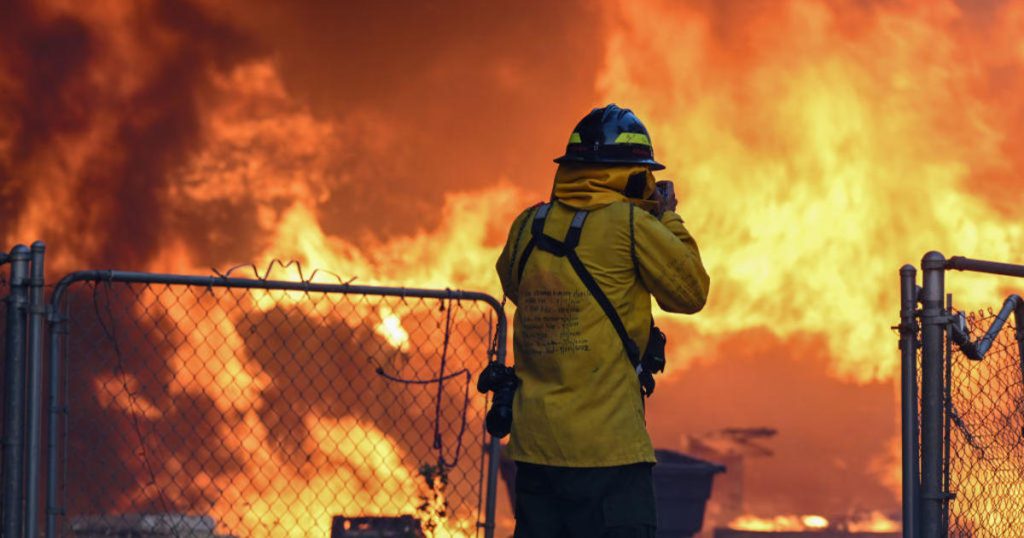Thousands of firefighters were battling a wildfire in northern California that expanded rapidly in size due to wind and heat. The Park Fire, which started in a park on Wednesday, grew from about 6,400 acres to a staggering 350,000 acres by Saturday, scorching an area about the size of Los Angeles. Cooler temperatures and increased humidity on Saturday provided some relief to firefighters, possibly slowing the blaze’s progress. However, Marc Chenard, a meteorologist at the National Weather Service, cautioned that the existing fires may not be extinguished despite the improved weather conditions.
The suspected arsonist, a 42-year-old man identified as Ronnie Dean Stout II, was arrested after allegedly pushing a burning car in the upper part of Bidwell Park in Chico. The fire sparked by the burning car destroyed more than 130 structures and prompted evacuations in four California counties. Despite the arrest of the suspect, the fire continued to advance at an alarming rate, with an incident commander noting that the blaze had been advancing 8 square miles per hour since its inception. While weather conditions have slowed the fire’s advance in some areas, firefighters were still working tirelessly to contain the blaze.
Across the western United States, more than 110 active fires were burning, covering 2,800 square miles as of Friday. Some fires were caused by weather factors, such as lightning strikes, exacerbated by climate change and record heat. In the Plumas National Forest near the California-Nevada line, another complex of fires was being addressed by fire crews, with a significant blaze ignited when a truck carrying lithium-ion batteries crashed and caught fire. Evacuations were ordered, with residents like Sherry Alpers making difficult decisions to safeguard their pets and belongings under challenging circumstances.
The National Interagency Fire Center reported that more than 27,000 fires had burned over 5,800 square miles in the U.S. so far this year, while in Canada, over 8,000 square miles had burned in more than 3,700 fires. The devastation caused by wildfires in these regions highlighted the ongoing challenges faced by authorities and residents in dealing with the impacts of climate change, extreme weather events, and human activities like arson. The outbreak of fires, the destruction of homes, and the displacement of communities underscored the urgent need for coordinated efforts to mitigate the risks and consequences of wildfires in the future. As firefighters continued to battle the blazes, communities remained on high alert, preparing for potential evacuations and the uncertainty of what the coming days might bring in terms of fire activity.


